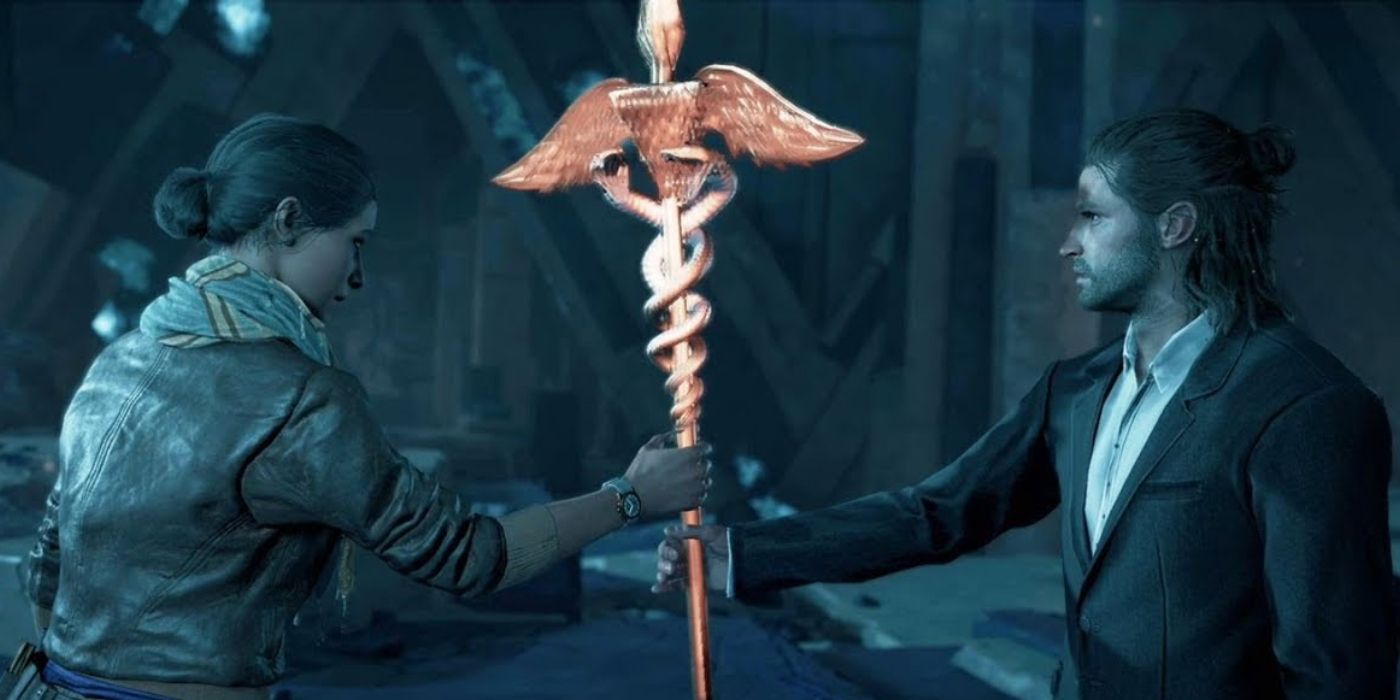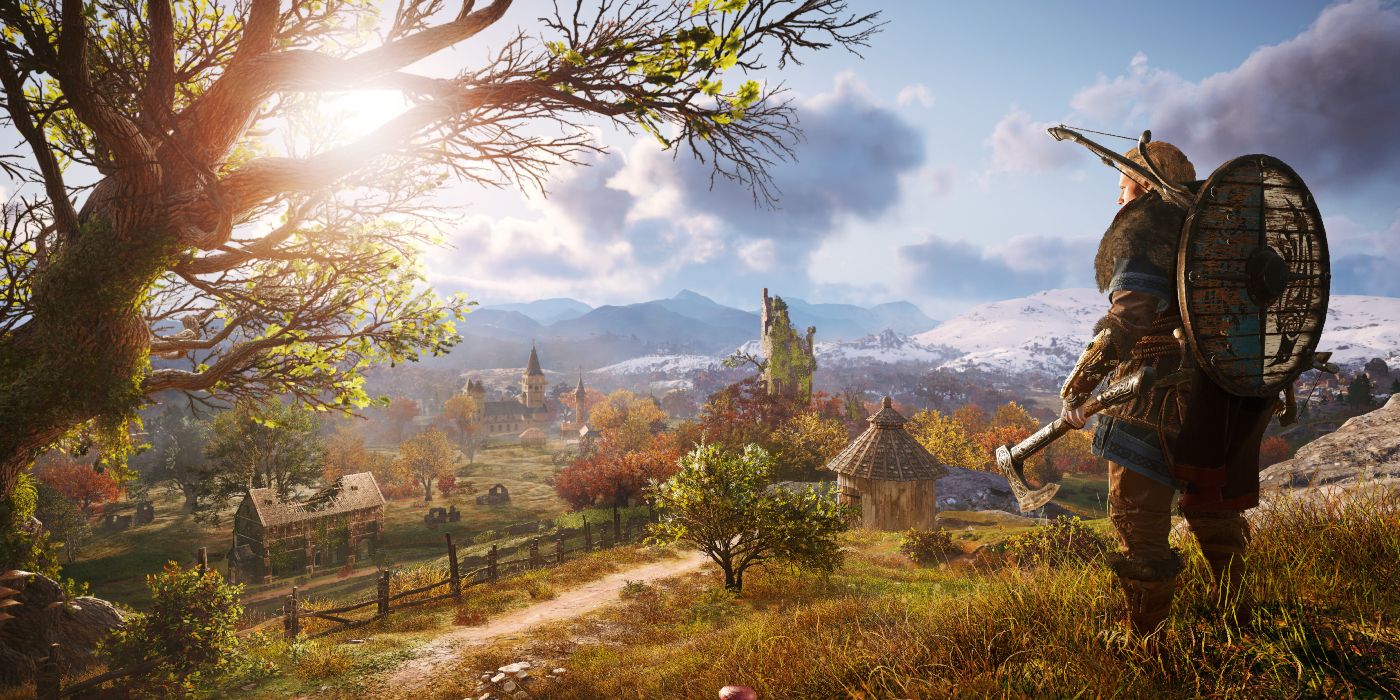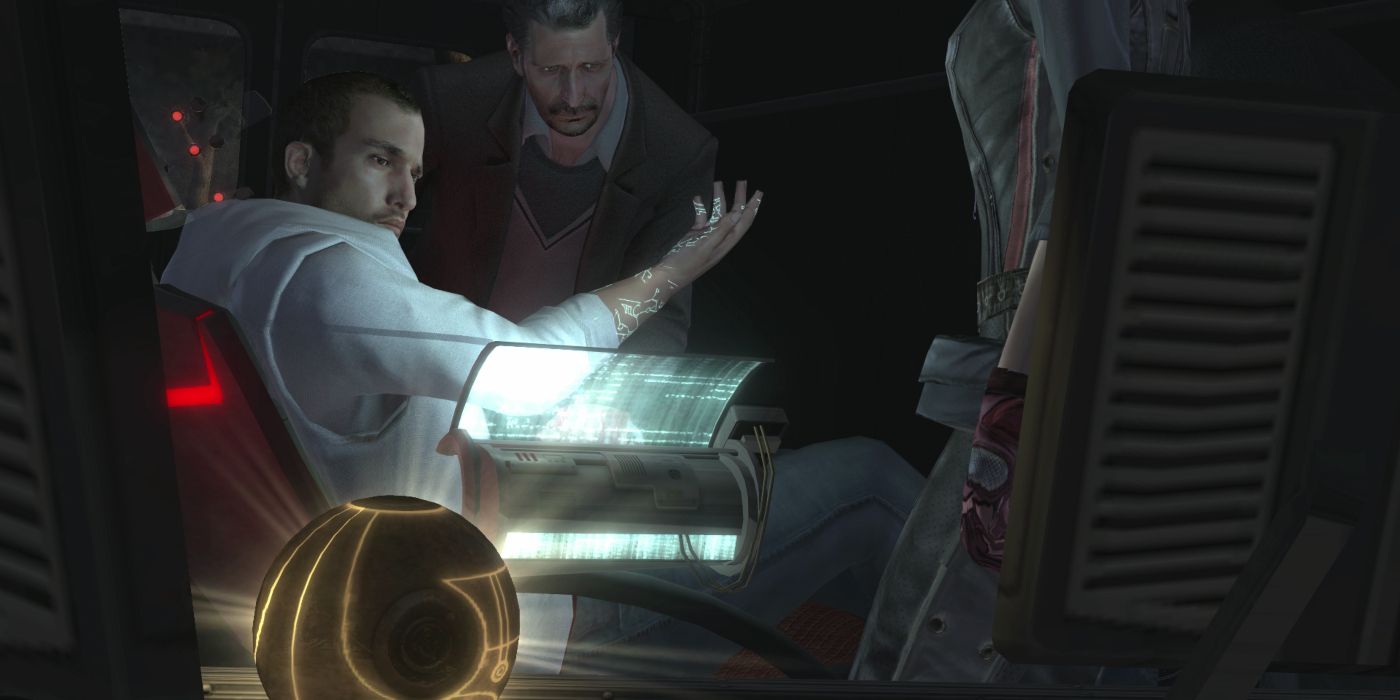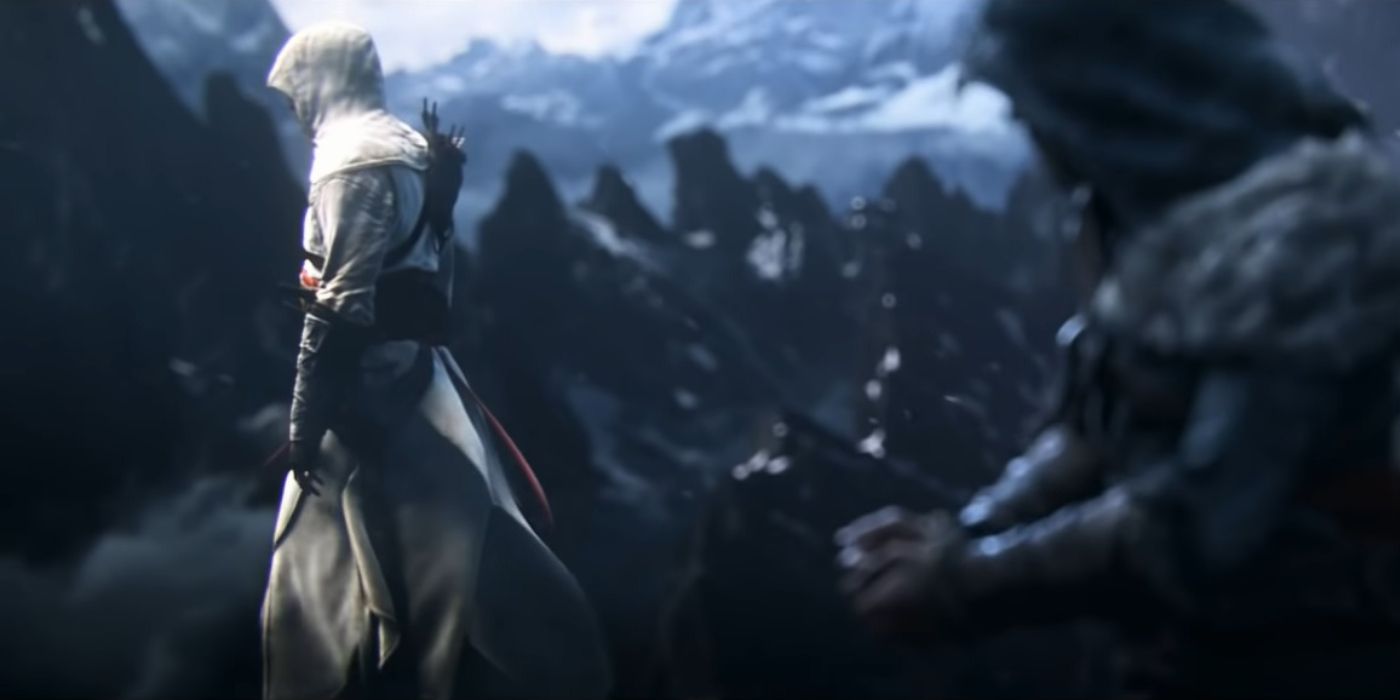A brand new wave of excitement is washing over the Assassin's Creed fanbase now that Valhalla has officially been announced. That game appears to be bringing with it a new era for the franchise, not just in terms of its Viking Age setting, but the creative direction in which the series is headed.
The upcoming game will feature a variety of new gameplay mechanics, as well as improvements to more familiar ones, and that seems to be just the beginning. There aren't a lot of details about how the story of the Assassin brotherhood will unfold in the Dark Ages, but Ismail has confirmed the story of Layla Hassan will continue, promising new surprises in that regard. That is no small claim, as the modern day storyline has never exactly been the most captivating aspect of the franchise. In fact, there are many who believe that the entire thing should be dropped from the series moving forward, and it's easy to see why.
The first act of the original Assassin's Creed, back in 2007, eased players into the Medieval Levant setting, punctuating every act with a short return to the present day and that section's hero, Desmond Miles, who would become the series' unwilling protagonist over the course of several games. In the original game, his sections consisted of short walks around the relatively small Abstergo Animus chamber. Assassin's Creed II saw just a marginal improvement with an escape from the modern Templars, a training session in a warehouse and a short introduction to the Bleeding Effect, which-- yes, momentarily brought players back to Altair, but also added much needed depth to both the character of Desmond Miles and his story.
Large portions of historical exploration littered with short sections of uninteresting trips back to the present day. Although, it's worth mentioning, they were uninteresting to play through. The story itself still gripped its audience, particularly when Desmond and Ezio or Altair encountered one another more directly.
That was essentially the formula of the Assassin's Creed games until Assassin's Creed III, which saw Desmond actually travel to different, interesting locations and act like an Assassin while searching for the First Civilization keys needed to enter the temple and save the world from the fury of the Sun. He had become a fully realized hero, but by then it was too little and far too late. This was the end of the storyline the franchise had constructed as its framing device. And the modern day has always primarily been just a framing device to link these different stories across completely different settings.
The problem is that in recent instalments, that framing story has become a directionless, tedious mess that has thus far consistently failed to satisfy many of the franchise's longtime fans.
With Desmond's story over and the world saved, there needed to be a new adventure and it appeared that the series was struggling to find one, so much so that Assassin's Creed Unity had almost completely removed modern day segments, opting instead for a meta-narrative of sorts that saw the player themselves engaging with the Assassin/Templar conflict by playing the game.
This isn't to say that the stakes weren't still high. Assassin's Creed III ended with Juno threatening her return and the series continued that in some small capacity, constantly teasing bits and pieces of what would become the Phoenix Project. Assassin's Creed Syndicate -- which included modern day sections in the form of video clips -- even showcased the one Piece of Eden that would allow Juno to return in full form: the Shroud. It ended on a cliffhanger, with series staples Shaun Hastings and Rebecca Crane beaten and the Shroud lost to the Templars. Fans were excited to see whether or not Rebecca would survive, how the Assassins would defeat a resurrected member of the godlike First Civilization, but they were left without an answer, at least not in the video games.
Several comic books were released, quickly and unceremoniously putting an end to the Juno plotline while introducing a secret organization known as the Instruments of the First Will and establishing Desmond Miles' son, Elijah. All this was left out of the video games which, meanwhile, rushed to introduce a brand new protagonist with Layla Hassan in 2017's Assassin's Creed Origins. Much like her predecessor, Desmond, Layla was confined to a cavern and what was essentially an Animus chamber throughout the game without a clear purpose.
There she stayed until Assassin's Creed Odyssey brought her to a different cave, albeit for some passably enjoyable reasons. Still, many fans continued to be dissatisfied. Two games in and this new storyline was still too vaguely defined to be interesting. Instead of bringing something special to these games, the modern day plot -- if one could call it that -- was an annoyance tacked onto otherwise enjoyable deep dives into a wide variety of fascinating eras of human history.
It is the history that fans have enjoyed most about the Assassin's Creed franchise. The minds behind the series know this; it's the whole reason why they released the Assassin's Creed Origins Discovery Tour and why they have seldom included the modern day storyline in trailers. When gamers purchase an Assassin's Creed game, it isn't the modern day storyline they look forward to seeing. It's the realistic, often-accurate depiction of the people and epochs that shaped the present. To put it differently, since the end of Desmond Miles' arc, the modern day storyline has become little more than dead weight.
Removing the modern day segments from future instalments would make for a sleeker experience, allowing gamers to fully immerse themselves in the best part of the franchise without purposeless sections to disturb it. Given general attitudes toward the modern day story, it would hardly be missed.




